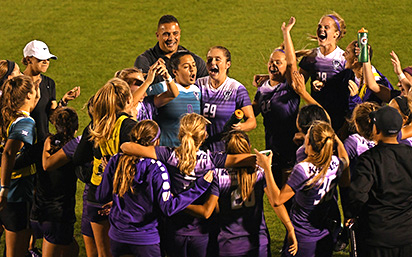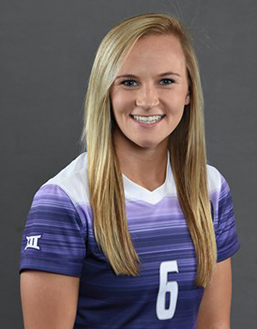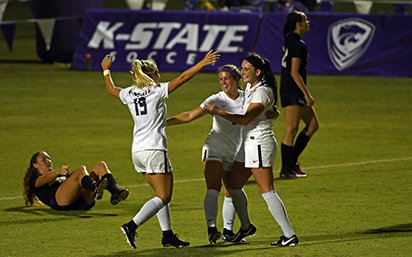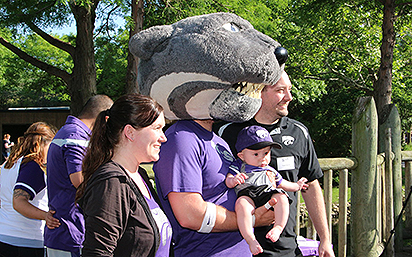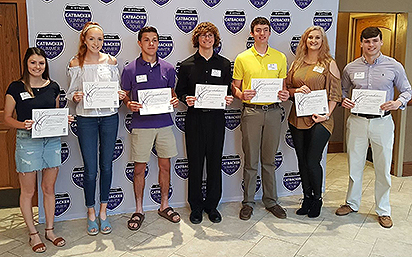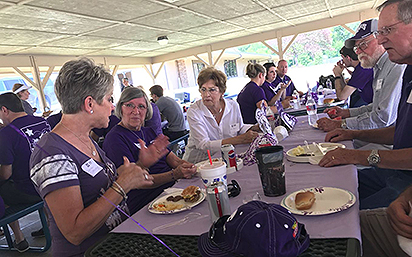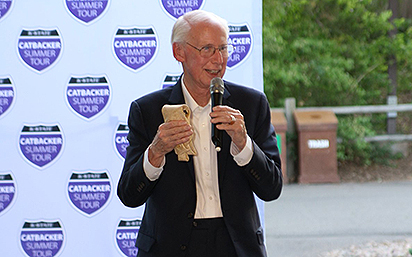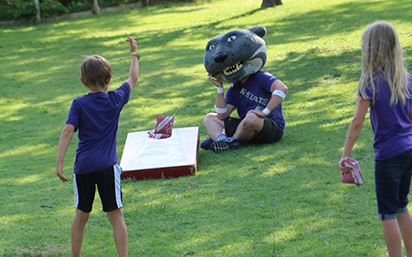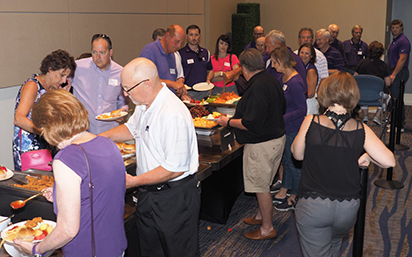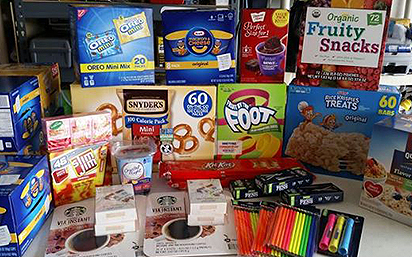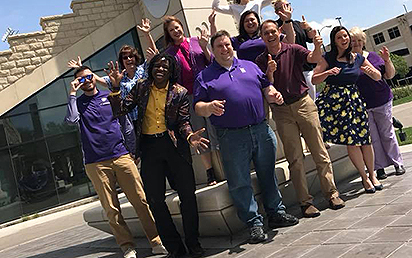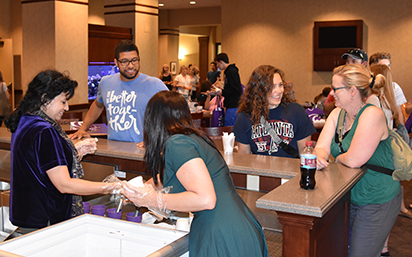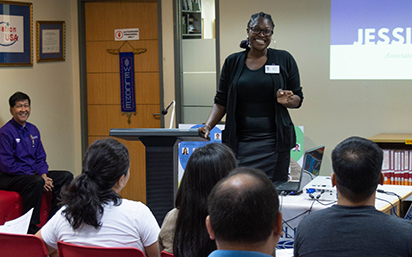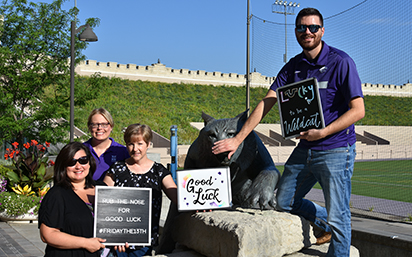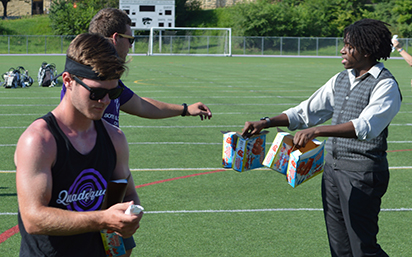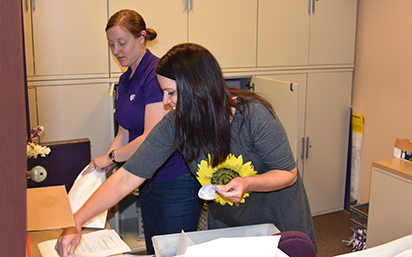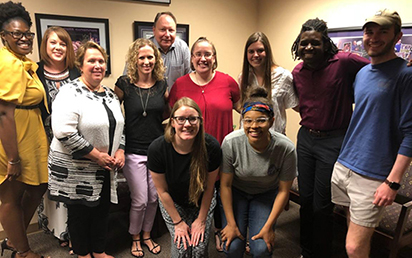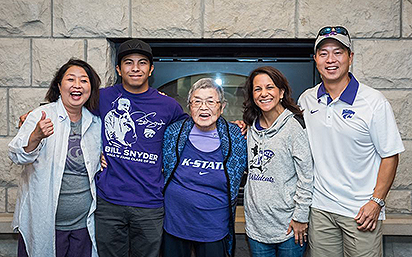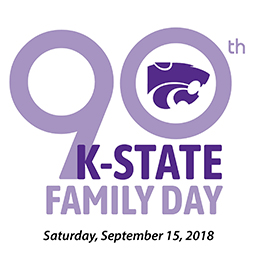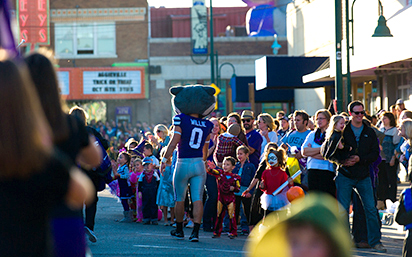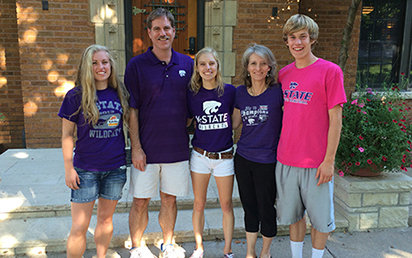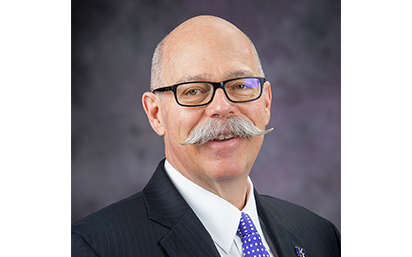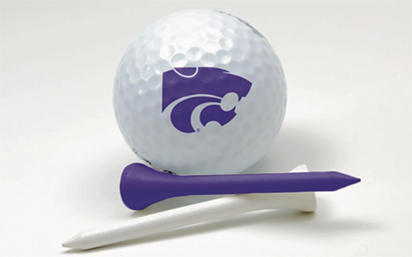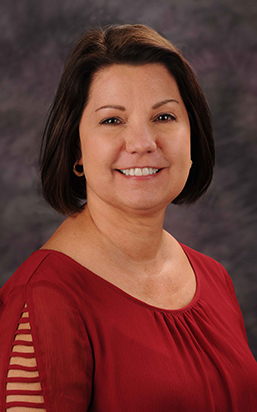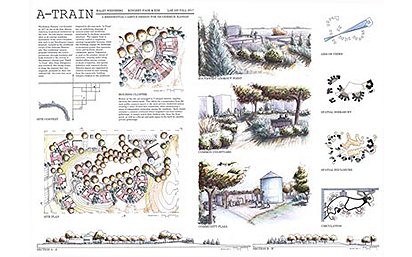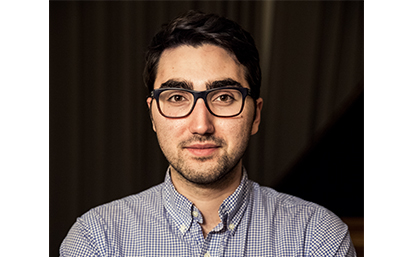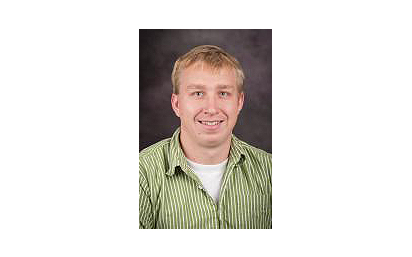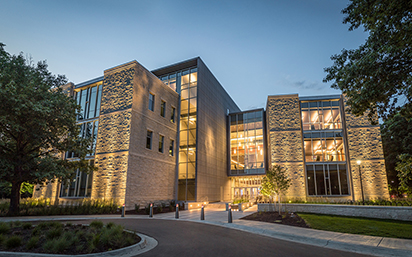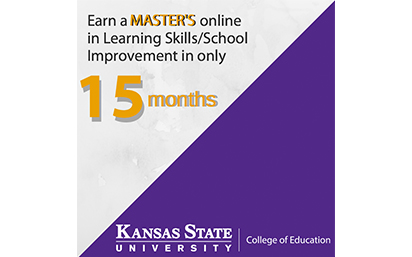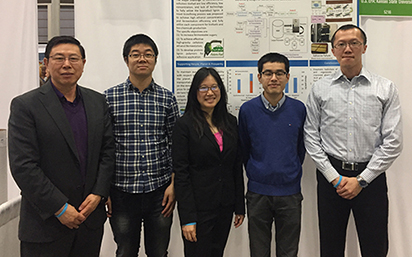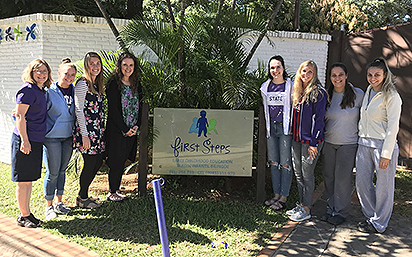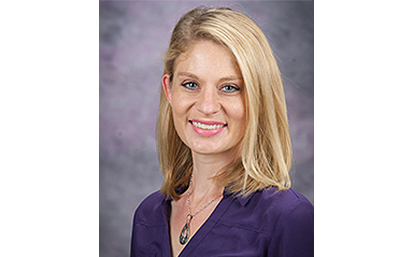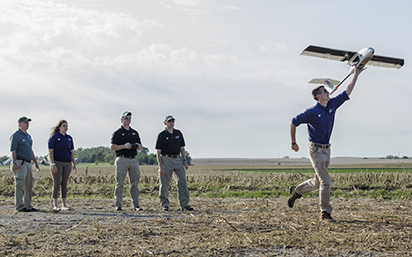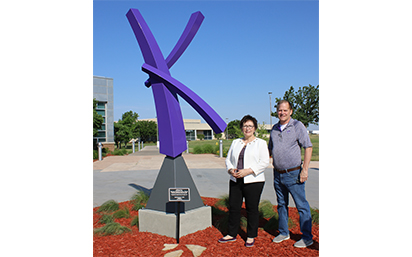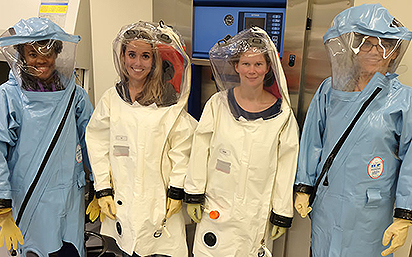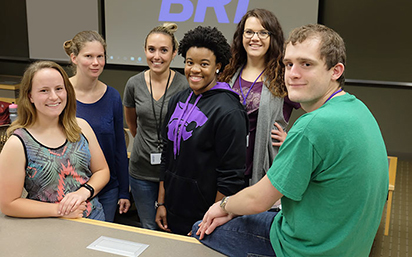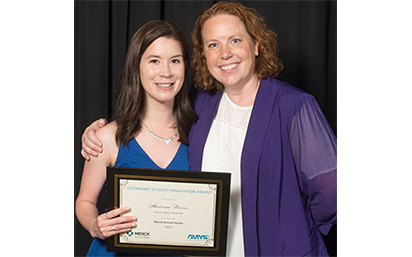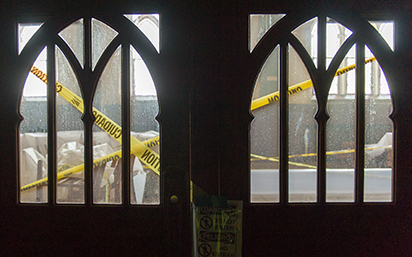
Hope for Hale: Library begins long process of recovery after fire
The doors to K-State’s famous Hale Library will remain closed this fall, in the aftermath
of the fire that occurred earlier this summer. Students will not be able to use the
space for studying, grabbing a book off the shelf, meeting with friends or other common
back-to-school activities.
Although the temporary absence of this beloved resource will be felt across campus,
this story of loss is also a story of hope, as K-Staters look towards the future and
begin the process of rebuilding.
“The outpouring of support from faculty, staff, students, alumni, donors and other
libraries around the country has been overwhelming,” K-State Libraries writer/editor
Sarah Hoyt posted in a recent Hale Library Blog entry. “We are profoundly grateful
for their generosity and kind words, and we know that with the K-State Family behind
us, the long chapter ahead of us has a very, very bright ending for an exciting, new
Hale Library.”
The fire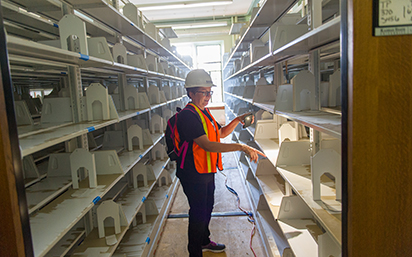 The fire occurred about 4 p.m. May 22 — alarms shattering the illusion of what seemed
like an ordinary Tuesday afternoon. Everyone rushed to evacuate the building, in some
cases leaving behind personal belongings in their haste.
The fire occurred about 4 p.m. May 22 — alarms shattering the illusion of what seemed
like an ordinary Tuesday afternoon. Everyone rushed to evacuate the building, in some
cases leaving behind personal belongings in their haste.
The fire started on the roof near the fourth floor of the building (there are five
floors total), believed to be an accident related to roofing work. Smoke filled the
library, and the structure had to be aired out for two days. An estimated 400,000
gallons of water were pumped into the building via sprinklers and fire hoses.
“There was so much water it was seeping through the limestone,” said Mike Haddock
’77, associate dean for Research, Education and Engagement with K-State Libraries.
“Water was coming in like rain.”
Haddock said that since the library has a gentle slope, the water went through every
floor and ended up in the data center in the basement. Although the damage to the
building from the smoke and water was extensive, Haddock credits the library’s new
sprinklers for preventing the fire from creating a worse disaster.
Tables were warped by the water, and most of the furniture on the first four floors
had to be removed. You can look up and see holes in the ceiling of the library’s famous
Great Room — a.k.a the “Harry Potter” room. Debris is scattered across the floor.
Smoke has stained the bookshelves. Water damage has threatened some of the library’s
well-loved murals. Mold growth is a concern due to the general dampness and heat.
In the background, you can hear the hum from the dehumidifiers and the chillers pumping
cooler air into the building.
The recovery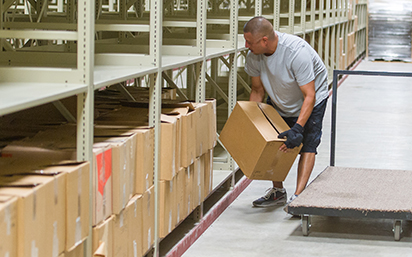 A variety of experts — from engineers to art restorers — have been working on the
building and the library’s collection of books. Teams started working seven days a
week, 12 hours a day on disaster recovery, since time is critical. The library is
now in the process of being cleaned and parts are being gutted.
A variety of experts — from engineers to art restorers — have been working on the
building and the library’s collection of books. Teams started working seven days a
week, 12 hours a day on disaster recovery, since time is critical. The library is
now in the process of being cleaned and parts are being gutted.
Wet books have been placed into boxes lined with plastic and then frozen in order
to protect them. About 3,000 boxes so far have been driven in refrigerated trucks
to a facility in Fort Worth, Texas, to vacuum dry them.
Approximately 1 million volumes from the library’s collection will need to be physically
cleaned. Gamma radiation (similar to X-rays) can be used to kill mold spores, but
this process can age the paper, so the library will have to decide how often to use
the process, Haddock said. Placing the books in an ozone chamber for 12 hours can
be used to neutralize the smoky odor.
Thankfully, the library’s special collections are housed on the fifth floor, above
where the fire started. This collection includes manuscripts, rare and unique books,
and photographs.
The future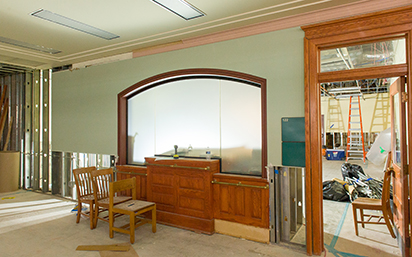 Haddock said the library had previously been planning a first floor renovation before
the fire and will now have to renovate four floors. K-Staters may have to wait until
December 2019 to fully use the building again.
Haddock said the library had previously been planning a first floor renovation before
the fire and will now have to renovate four floors. K-Staters may have to wait until
December 2019 to fully use the building again.
“It’s going to be a while,” Haddock said.
The university is still waiting for official cost estimates to come in but has received
an advance insurance payment of $12 million (the university’s policy had a $500,000
deductible). The university is also working on a plan for recommended study space
for students this fall; Haddock estimates the library typically sees 30,000 entries
in a normal week.
In the meantime, K-Staters continue to band together and help each other during the
restoration process. Buildings across campus have opened their doors to library staff,
providing temporary office space until they can return to Hale. The K-State Libraries
administration team, including Dean Lori Goetsch, are being housed on the third floor
of the K-State Alumni Center.
“Our land-grant ethos requires that we take setbacks in stride and continue to strive
for growth and progress,” President Richard Myers ’65 wrote in a letter to K-Staters
following the fire. “The fire in Hale Library brought out the best in our family and
community. City, county, state, military and other agencies had our backs, with firefighting,
emergency management and support. Because this university and its people are resilient,
I know we will continue to work hard to restore Hale Library to its full glory.”
The Kansas State University Foundation has established a special fund for those who
would like to contribute to the recovery and restoration of Hale Library after the
fire. LEARN MORE.
Stay informed about the progress on the Hale Library renovation.

